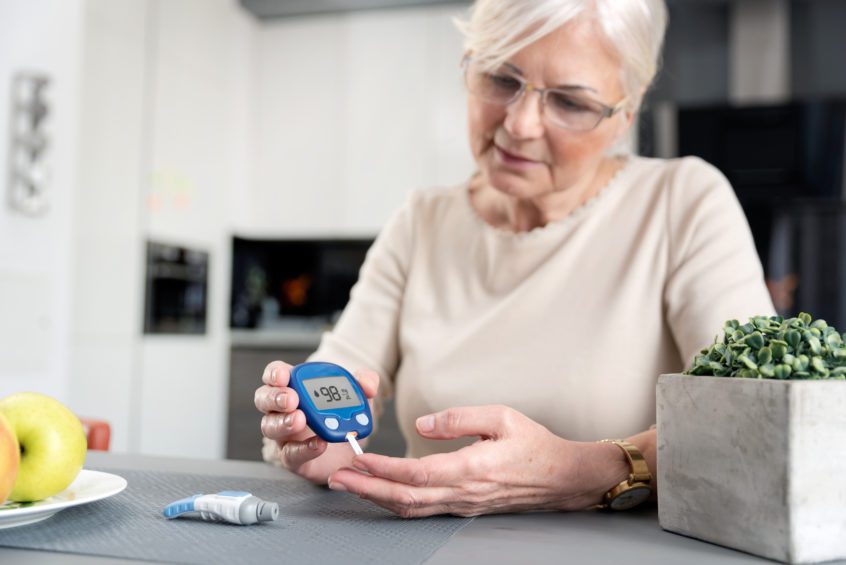Two of the most common health problems in an aging population are diabetes and hearing loss. Individuals with diabetes have twice the incidence of hearing loss compared to those without diabetes and those with prediabetes have a 30% higher rate of hearing loss.
In fact, the World Health Organization reports that the worldwide prevalence of disabling hearing loss affects 466 million people and the number of adults (20–79 years) with diabetes is estimated at 463 million, with the prevalence of diabetes increasing with age, according to the International Diabetes Federation.
In addition, according to the American Diabetes Association, a recent study found that hearing loss is twice as common in people with diabetes as it is in those who don’t have the disease. Also, of the 88 million adults in the U.S. who have prediabetes, the rate of hearing loss is 30 percent higher than in those with normal blood glucose.
But what’s the connection between the two?
Currently, it’s not clear how diabetes and hearing loss are related. More research needs to be conducted to figure out why people with diabetes and prediabetes have a higher rate of hearing loss. However, one theory is that high blood glucose levels, which are known to damage the eyes and the kidneys, also may cause damage to the small blood vessels in the inner ear.
So, while scientists can’t go so far as to say that diabetes causes hearing loss, they can say there seems to be a connection.
If you have diabetes or prediabetes, pay particular attention to your hearing. Often, hearing loss is very gradual, making it difficult for the individual to know whether their hearing has been affected or not.
Here are some signs of hearing loss that you might want to watch for:
- You often ask others to repeat themselves or find yourself asking “What?” a lot.
- You have difficulty following conversations when more than two people are involved.
- You think others are constantly mumbling.
- You have difficulty hearing in noisy places, such as busy restaurants or in crowds.
- You have problems hearing higher pitched voices of women and children.
- You are constantly turning up the volume on the television or radio to the point that it’s too loud for others in the room.
- You have problems hearing words that begin with the consonants, f, s, t and z, among others.
If you are experiencing any of these issues, consider a comprehensive hearing evaluation. During an evaluation, an audiologist can assess your hearing to determine how well you are hearing and if you are a candidate for hearing aids.
If your results are normal, a hearing evaluation is still a good idea if you have diabetes. This is because the evaluation establishes your baseline hearing at a specific point in time. If you notice your hearing declining, the audiologist will have a baseline against which to measure it.
If the examination determines you have a hearing loss, it can help the audiologist determine the type of hearing loss you have and make specific recommendations for you regarding hearing aids.
To better understand the possible connection between diabetes and hearing loss, more research is being conducted. However, based on the data currently available, the Better Hearing Institute (BHI) urges individuals with diabetes to get their hearing tested regularly to monitor for changes in hearing.



